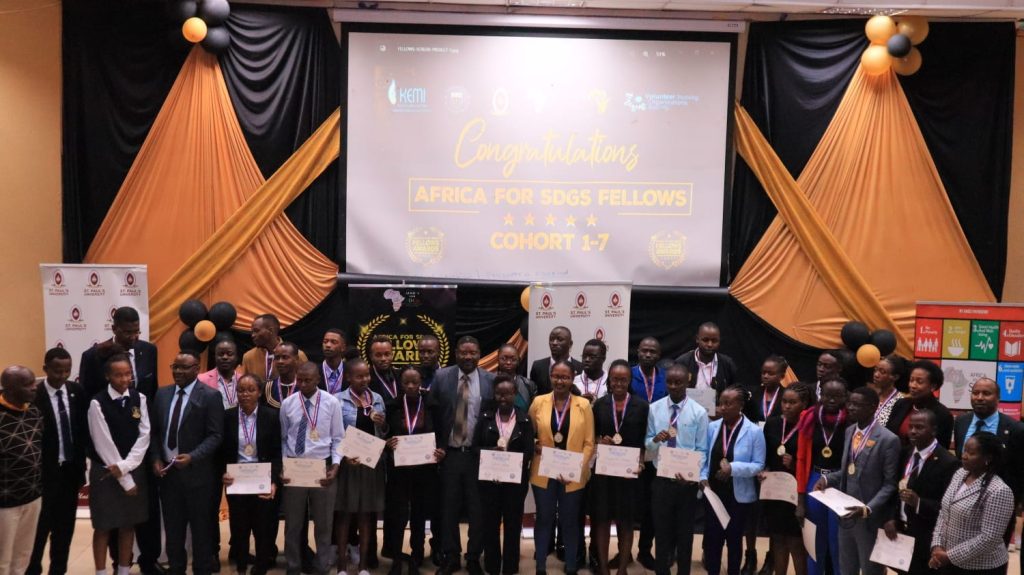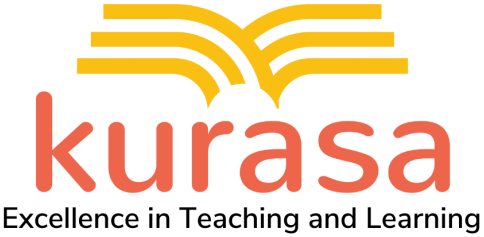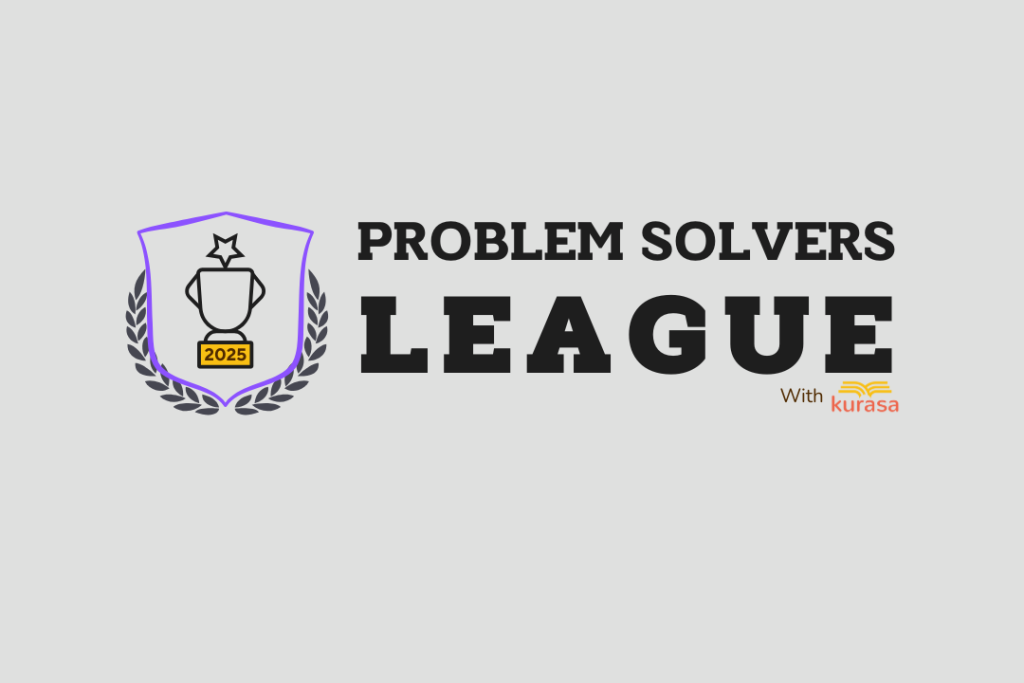
Go Serve.
It was such a pleasure attending the 1st Africa SDGs Fellows Awards event that was hosted at St. Paul University in Limuru. We thank the organizers for inviting us to such an eye-opener on how our young people are leading from the front in their respective institutions.
The event, which was attended by participants drawn from universities, colleges, high schools, and primary schools from across the country, saw over 140 fellows get awarded as SDGs and ESD Champions in Africa, having been trained by Africa for SDGs in fellowship cohorts (cohort 1 to 7).
But what is Education for Sustainable Development (ESD)?
In 2014, a UNESCO World Education for Sustainable Development conference was held in Aichi Nagoya in Japan, Ministers for Education from United Nations Member States made a declaration to mainstream education for Sustainable Development and include it in the 2015 Agenda. Kenya was among the world leaders that committed to the agenda. Since then, Kenya through the Ministry of Education established partnerships and networks with other organizations such as the Ministry of Health, Ministry of Environment and Natural Resources, UNESCO, UNEP, WFP, UNICEF, and MASHAV for effective implementation of ESD.
The vision has been to engage Students in different institutions to transform innovative ideas into solutions and products that address urgent social, economic, and environmental challenges, without compromising the ability of future generations from meeting their own needs. This model promotes competencies among champion teachers and learners, such as critical thinking, creativity, and making decisions in a collaborative way, while finding solutions for their surroundings, in line with aspirations of Kenya’s Vision 2030 and the Global Action Programme (GAP) on ESD and SDGs.
This is achieved through the following 7Rs of ESD, where learners Reduce through doing more with less, Repairing and fixing things one more time before dumping, recycling by finding meaning for waste, refusing to buy anything that harms our environment, reusing by finding more use of old things, rethinking by valuing things more through creativity and Reconnecting by passing it on to someone else who would add value to which you are not using.
Any school or institution that would like to be part of the ESD program, ought to follow these four (4) easy steps in implementing ESD for SDGs in their Schools/institutions. First Identify a leadership community made up of a champion teacher, a student council representative, and a club or society leaders/representatives. The 17 ESD fellows are nominated by each club to represent the 17 SDGs. They then get trained in cohorts where they innovate ideas that represent ESD’s social, economic, and environmental pillars. The 17 fellows recruit members of their clubs to implement their innovative ideas for inter-clubs and inter-school competitions. Once all levels are done, the Registered institutions attend the National ESD Awards to award the best innovation and school from each category drawn from the 4 pillars.
With over 100 institutions already running this program, we can’t wait for the next awards ceremony to crown more schools/institutions and thousands more fellows. For now, we wish the fellows all the best as they continue serving in their own capacity and spreading this to more countrymen and women.
Excerpt link
https://www.youtube.com/watch?v=R6TzCzsaa-8

